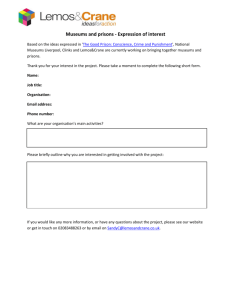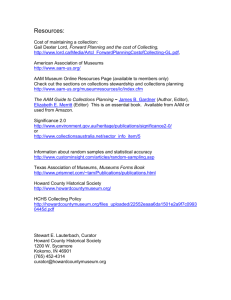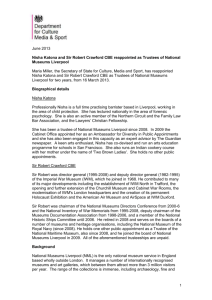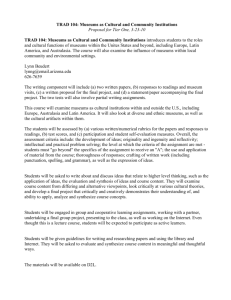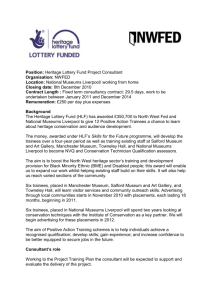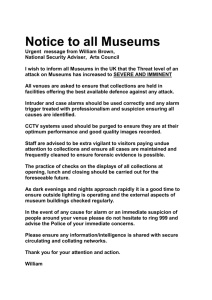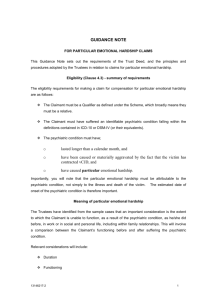Requesting the return of human remains
advertisement
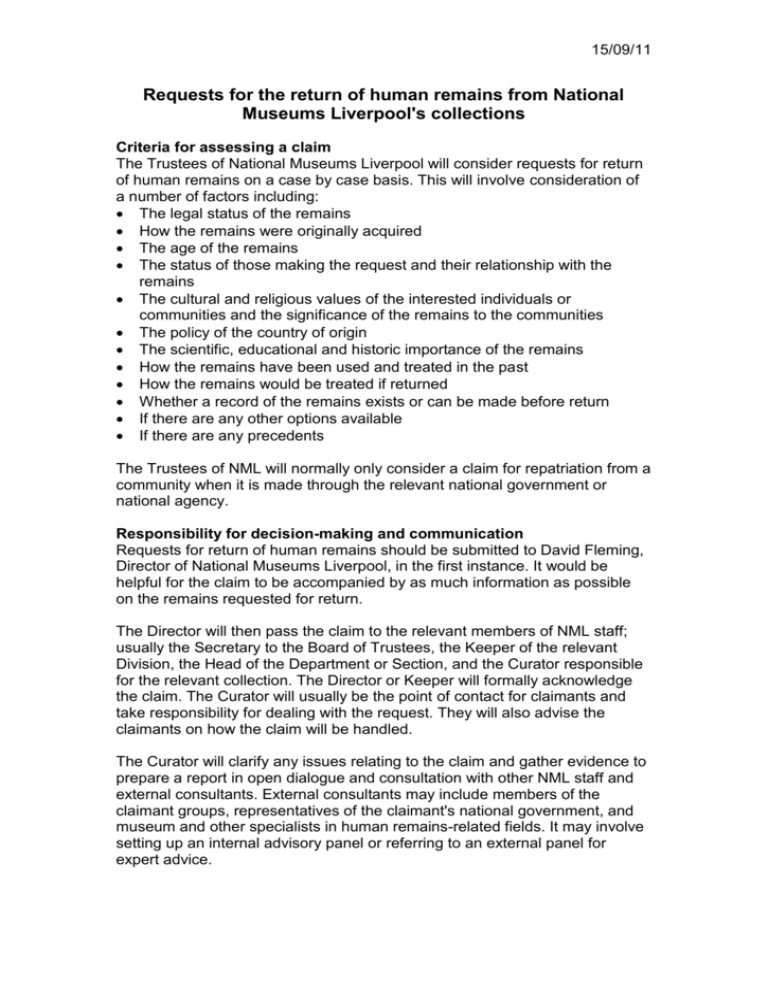
15/09/11 Requests for the return of human remains from National Museums Liverpool's collections Criteria for assessing a claim The Trustees of National Museums Liverpool will consider requests for return of human remains on a case by case basis. This will involve consideration of a number of factors including: The legal status of the remains How the remains were originally acquired The age of the remains The status of those making the request and their relationship with the remains The cultural and religious values of the interested individuals or communities and the significance of the remains to the communities The policy of the country of origin The scientific, educational and historic importance of the remains How the remains have been used and treated in the past How the remains would be treated if returned Whether a record of the remains exists or can be made before return If there are any other options available If there are any precedents The Trustees of NML will normally only consider a claim for repatriation from a community when it is made through the relevant national government or national agency. Responsibility for decision-making and communication Requests for return of human remains should be submitted to David Fleming, Director of National Museums Liverpool, in the first instance. It would be helpful for the claim to be accompanied by as much information as possible on the remains requested for return. The Director will then pass the claim to the relevant members of NML staff; usually the Secretary to the Board of Trustees, the Keeper of the relevant Division, the Head of the Department or Section, and the Curator responsible for the relevant collection. The Director or Keeper will formally acknowledge the claim. The Curator will usually be the point of contact for claimants and take responsibility for dealing with the request. They will also advise the claimants on how the claim will be handled. The Curator will clarify any issues relating to the claim and gather evidence to prepare a report in open dialogue and consultation with other NML staff and external consultants. External consultants may include members of the claimant groups, representatives of the claimant's national government, and museum and other specialists in human remains-related fields. It may involve setting up an internal advisory panel or referring to an external panel for expert advice. 15/09/11 A full written report will be submitted to the Executive Team. If approved by the Executive Team, the recommendation will then be referred to the full Board of Trustees for a final decision. Decisions made on a claim will be reached by weighing up the criteria given above. Once a decision has been made it will be fully recorded and the claimants informed within seven days, with reasons for the decision made clear to them. If they wish to respond, they should do so within six months of hearing the decision. Timescale Requests for return will be dealt with as quickly as possible. However it should be noted that research relating to the criteria given above may take several weeks or months. Although the Executive Team meets regularly and the Board of Trustees five times a year, processing a request for return is likely to take at least six months. Costs National Museums Liverpool will normally meet the costs for processing a claim, although the claimant's national government or national agencies may assist with this. Access to human remains National Museums Liverpool will not allow public access to remains while the resolution of a claim for return is pending. Please see the following for more information: MEG Guidelines on Management of Human Remains (Museum Ethnographers Group, 1991) The Report of the Working Group on Human Remains (DCMS, 2003) Guidance for the Care of Human Remains in Museums (DCMS, 2005) Guidance for best practice for treatment of human remains excavated from Christian burial grounds in England (Church of England & English Heritage, 2005)
